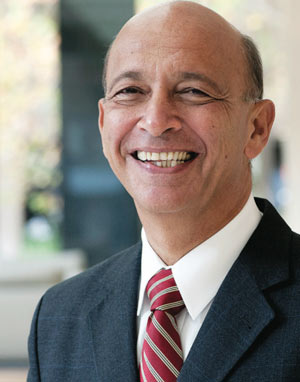 Population ageing is perhaps the greatest success of the 20th century and one that should be resoundingly celebrated. The extra years afforded to hundreds of millions of people all over the world are a triumph of civilization.
Population ageing is perhaps the greatest success of the 20th century and one that should be resoundingly celebrated. The extra years afforded to hundreds of millions of people all over the world are a triumph of civilization.
According to Brazilian Dr. Alexandre Kalache, a world renowned expert on longevity, the gift of the 20th century must be translated into opportunity for the 21st century. Humanity has entered new territory and entirely new thinking is required. It is unsustainable to continue to live within previous paradigms.
In his interesting book “The Longevity Revolution” Dr. Kalache explains that a revolution is the overthrow of social order in favour of a new system. The extra years of life afforded to us in the 21st century are a condition never before experienced by humanity. The 20th century has given us the gift of longevity – but for what? The longevity revolution forces us to abandon existing notions of old age and retirement. These old social constructs are quite simply unsustainable in the face of an additional 30 years of life.
Another must read for any person interested on the subject is “Active Ageing and healthy Living” by Giuseppe Riva, Paolo A. Marsan and Claudio Grassi
Here we share some of their thoughts: In all industrialized and more advanced countries the “Demographic Change” of the population is one of the most important societal challenges that Governments will have to face in the next future.
The Demographic Change is a direct consequence of the simultaneously rise in life expectancy and of the decrease in birth rates leading to a huge shift in the population structure of communities and to a prevalence of older generations in the total number of citizens. Epidemiological studies report that at the beginning of the 20th century the average life expectancy of a woman born in Western Europe was 48 years, and that of a man was 45 years; today, they can expect to live 82 and 77 years, respectively. It is clear that most societal field will be impacted by this change significantly with unpredictable consequences on structures of society, social cohesion and equity, productive systems, mobility, connection changes, services needs, communication systems, economic policy and distribution of resources.
Researchers of all scientific fields should provide an analyses of the biological, social and economic consequences of ageing to cope with these changes and in order to supply the technical and societal adaption, the economical and policy adjustments, and finally the adequate prevention strategies in order to contrast the impact due to lack of validity, decrease of productivity and of all general abilities in the population.
Meanwhile, ageing does not represent per se a burden, but it can also represent an opportunity to be explored; within this frame a positive vision of ageing in Europe requires joining forces in ageing-related research and establishing coordination and collaboration between the national research programs in several key areas.
Indeed, several research fields are involved ranging from health, welfare, education and social programs, to financial reforms, to technology improvement. Health care programs aiming at developing prevention strategies for a optimized ageing will have a pivotal role in reducing the needs of social and financial interventions and in reducing the general costs of the societal policy for the elderly people in the future. High relevance must be addressed to the research in the field of prevention and in the studies aiming at delaying the onset of degenerative diseases in the elderly.
Good health is the most important factor to live independently in old age. A better understanding of ageing processes and the related plasticity of individual performance, the prevention for age-related illnesses and healthcare strategies are the basis for keeping people healthy and active throughout the course of their lives. In spite of these premises oldest-old people (aged + 85 years) has been the most rapidly expanding fragment of the population in developed countries in the last decades.
Our policy makers should bear in mind that the present trend is preventive gerontology and investment in age friendly towns and environment whereas people of all ages should be taught and trained from school to university in health literacy.
F. Javier González